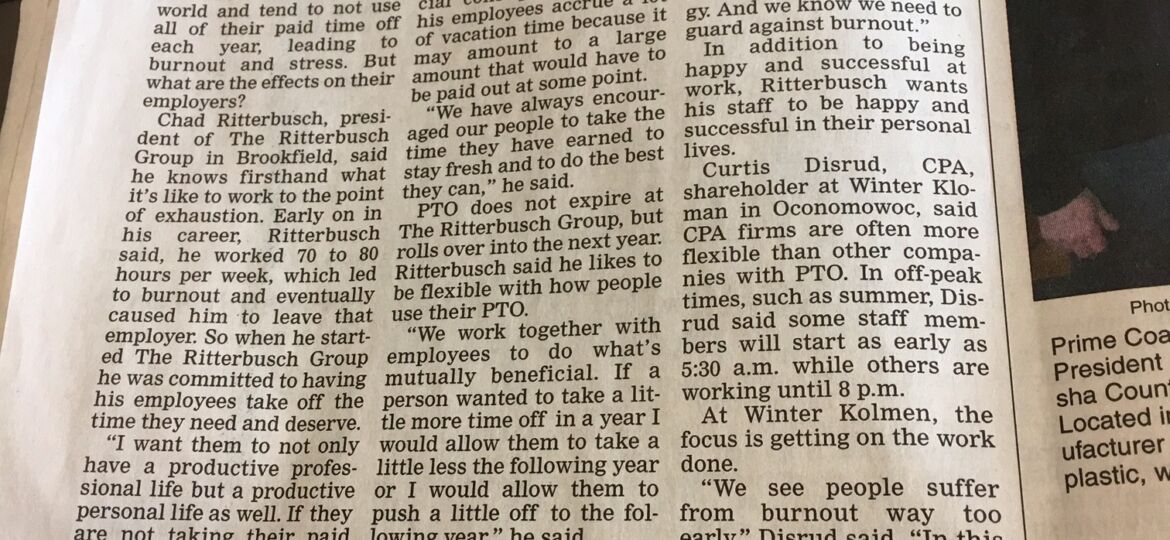Chad Ritterbusch was featured in the March 18th edition of the Waukesha Freeman. The article focused on time off and how it is important for both employees and employers to take advantage of it. The first part of the article is below or you can find the full article here.
The importance of time off for workers — and employers
A break from the job is mutually beneficial
For years we’ve been informed that Americans are some of the hardest workers in the world and tend to not use all of their paid time off each year, leading to burnout and stress. But what are the effects on their employers?
Chad Ritterbusch, president of The Ritterbusch Group in Brookfield, said he knows firsthand what it’s like to work to the point of exhaustion. Early on in his career, Ritterbusch said, he worked 70 to 80 hours per week, which led to burnout and eventually caused him to leave that employer. So when he started The Ritterbusch Group he was committed to having his employees take off the time they need and deserve.
“I want them to not only have a productive professional life but a productive personal life as well. If they are not taking their paid time off they are risking their creative energy and their ability to be productive in the long term,” he said.
According to the Bureau of Labor and Statistics, in 2012 84 percent of private industry workers received vacation, holiday, or personal leave. Seventy-two percent of workers received both paid holidays and paid vacations, and 61 percent were covered by sick leave plans. For employers, the cost for providing these benefits to employees was $1.98 per hour worked, and these benefits made up 6.9 percent of total compensation.
Ritterbusch said he is aware of the possible financial consequences should his employees accrue a lot of vacation time because it may amount to a large amount that would have to be paid out at some point.
“We have always encouraged our people to take the time they have earned to stay fresh and to do the best they can,” he said.
PTO does not expire at The Ritterbusch Group, but rolls over into the next year. Ritterbusch said he likes to be flexible with how people use their PTO.
“We work together with employees to do what’s mutually beneficial. If a person wanted to take a little more time off in a year I would allow them to take a little less the following year or I would allow them to push a little off to the following year,” he said….


